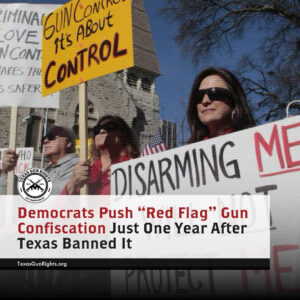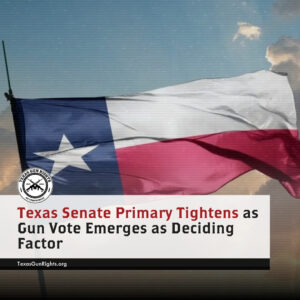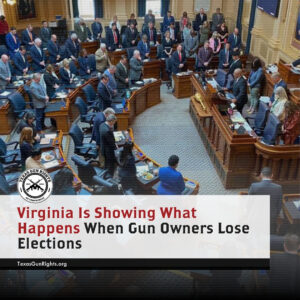July 9, 2024
As we reported last week, the U.S. Supreme Court has overturned the Chevron Deference doctrine, a move that promises significant implications for gun owners and the administrative state’s power.
The decision, handed down on June 28, 2024, marks a substantial shift in the judicial review of regulatory actions, particularly those undertaken by the Bureau of Alcohol, Tobacco, Firearms and Explosives (ATF).
By describing the 1984 Chevron decision as “fundamentally misguided” and a “byzantine set of preconditions and exceptions,” SCOTUS has now empowered judges to closely scrutinize and potentially overturn regulatory agency actions, significantly limiting their power to redefine their authority. This decision dismantles an important tool of the political bureaucracy—the appeal to “experts”—and returns judicial authority to the courts.
Chevron Deference, established by the 1984 case Chevron U.S.A., Inc. v. Natural Resources Defense Council, Inc., mandated that courts defer to federal agencies’ interpretations of ambiguous statutes, provided those interpretations were reasonable.
For decades, federal courts often sided with agencies, even when their decisions were questionable. This gave agencies leeway to interpret laws in ways that expanded their power, sometimes at the expense of constitutional rights.
For gun owners, Chevron was often translated into more restrictive regulations and a lack of judicial recourse. This doctrine effectively empowered agencies like the ATF to act as judge, jury, and executioner in regulatory matters.
Chris McNutt, President of Texas Gun Rights, explained the significance: “The Supreme Court’s decision to overturn Chevron is a game-changer. It removes the undue deference that courts have historically given to agencies like the ATF. Now, federal courts will evaluate these cases independently, ensuring that no agency can bypass judicial scrutiny.”
This decision could not have come at a more critical time.
The ATF has been at the center of several contentious regulatory battles, including those over bump stocks, pistol braces, and redefinitions of what constitutes a firearm.
Under Chevron, the ATF’s expansive interpretations were often upheld by courts. Without Chevron, these regulations will face stricter scrutiny.
McNutt highlighted the immediate effect: “Ongoing and future litigation against the ATF now has a higher chance of success. For instance, in the bump stock ban case, courts will no longer feel compelled to side with the ATF just because of their perceived expertise. They will look at the facts and the law more objectively.”
One significant impact is on federal firearm licenses (FFLs). The ATF has been known to revoke these licenses for minor infractions, citing willful violations. Without Chevron Deference, there’s a stronger chance that courts will thoroughly examine whether such violations are truly willful or simply clerical errors, giving gun dealers a fairer chance in disputes.
Critics of Chevron have long argued that it undermined the separation of powers by allowing executive agencies to wield legislative and judicial authority.
The Supreme Court’s ruling realigns the balance of power, reaffirming the judiciary’s role in interpreting the law.
McNutt emphasized, “This decision is a monumental victory for gun owners. It ensures that regulatory agencies like the ATF cannot impose restrictive measures without thorough judicial review. This upholds the fundamental principle that no agency should have unchecked power over the rights of citizens.”
For gun owners, this decision is a monumental victory. It curtails the ATF’s ability to unilaterally impose restrictive regulations without thorough judicial review.
By ensuring that courts evaluate regulatory actions independently, the decision upholds the fundamental principle that no agency should have unchecked power over the rights of citizens.
In the broader context, the Supreme Court’s decision to overturn Chevron Deference is a significant step toward reining in the administrative state and restoring constitutional checks and balances.
For the gun community, it marks a triumph in the ongoing battle to protect Second Amendment rights from overreach by federal agencies.







